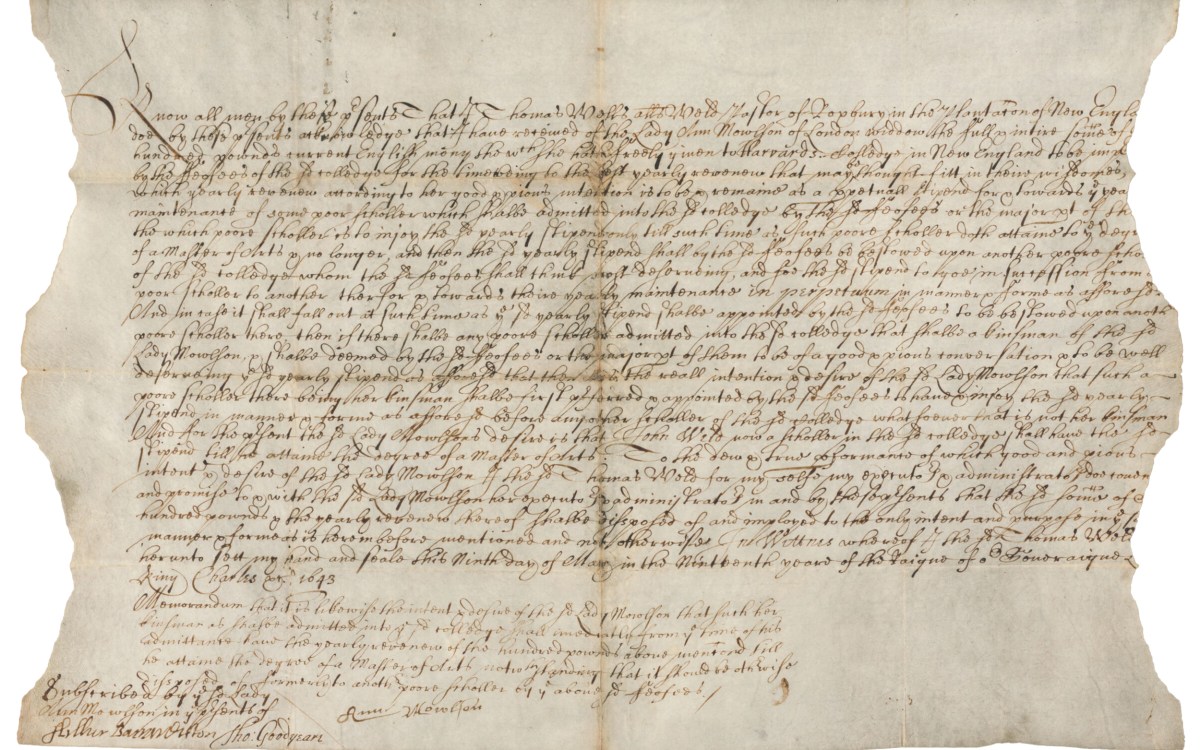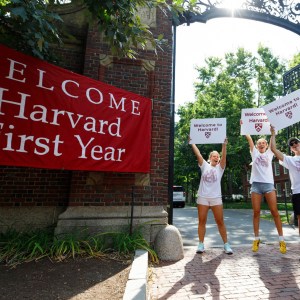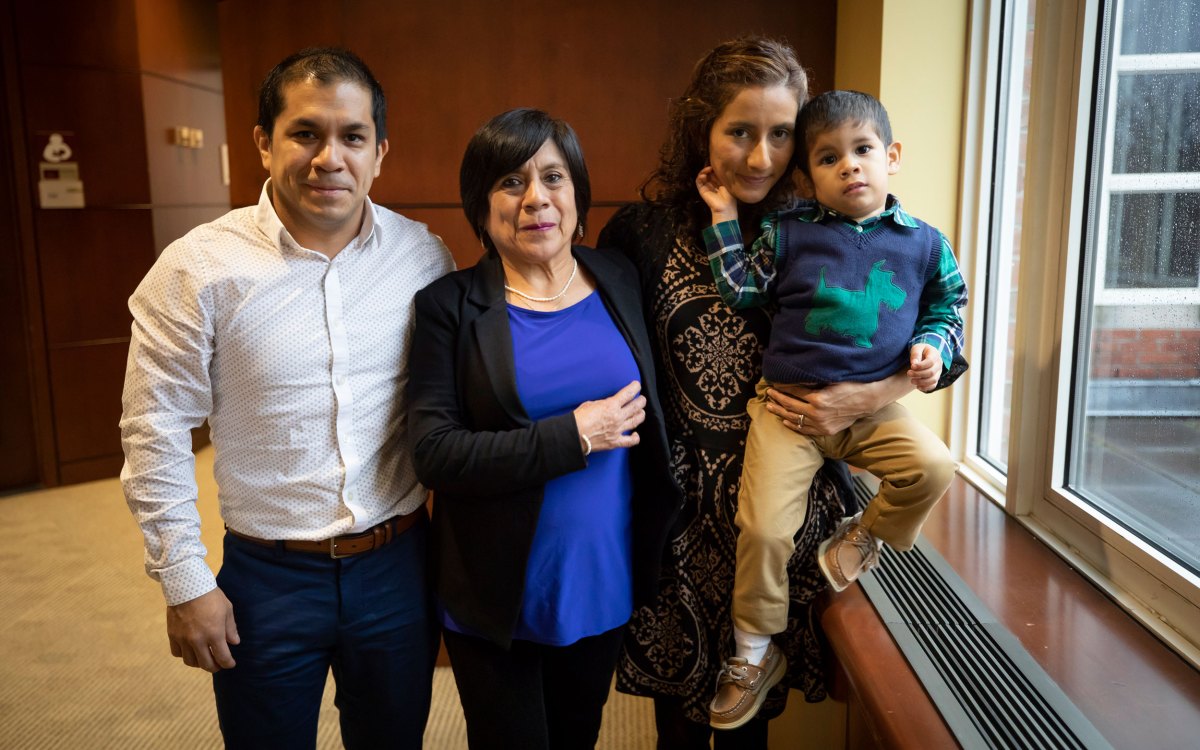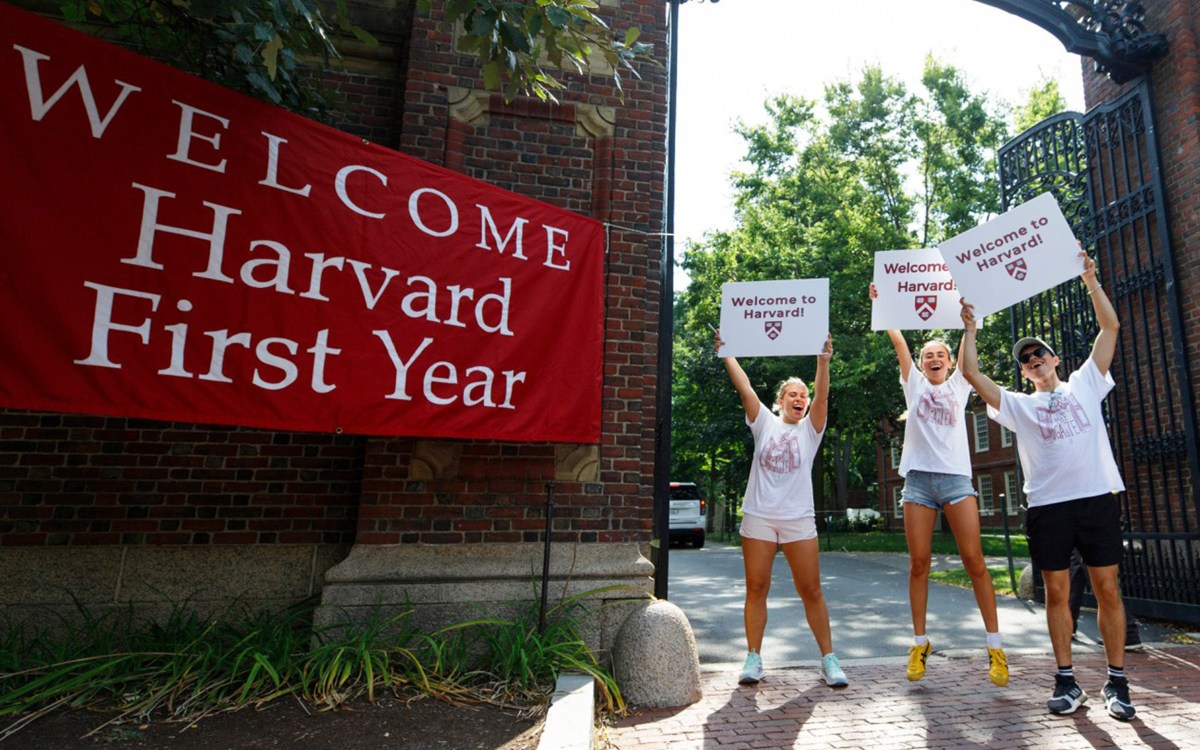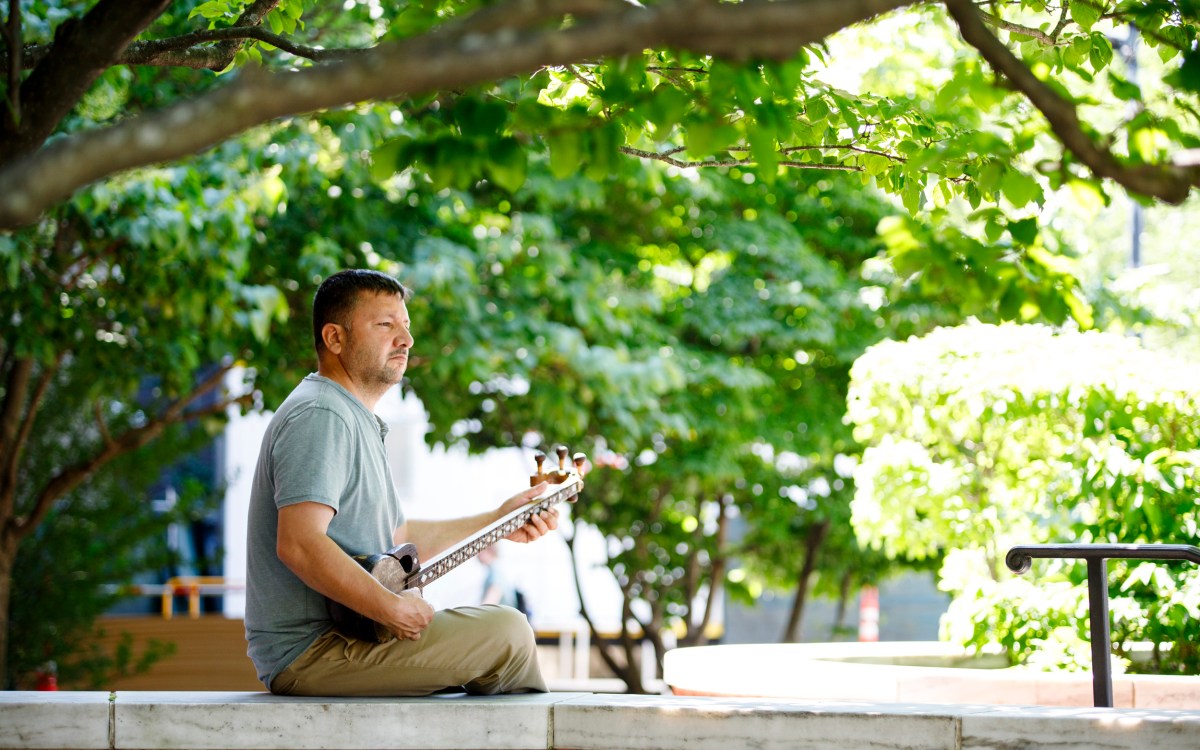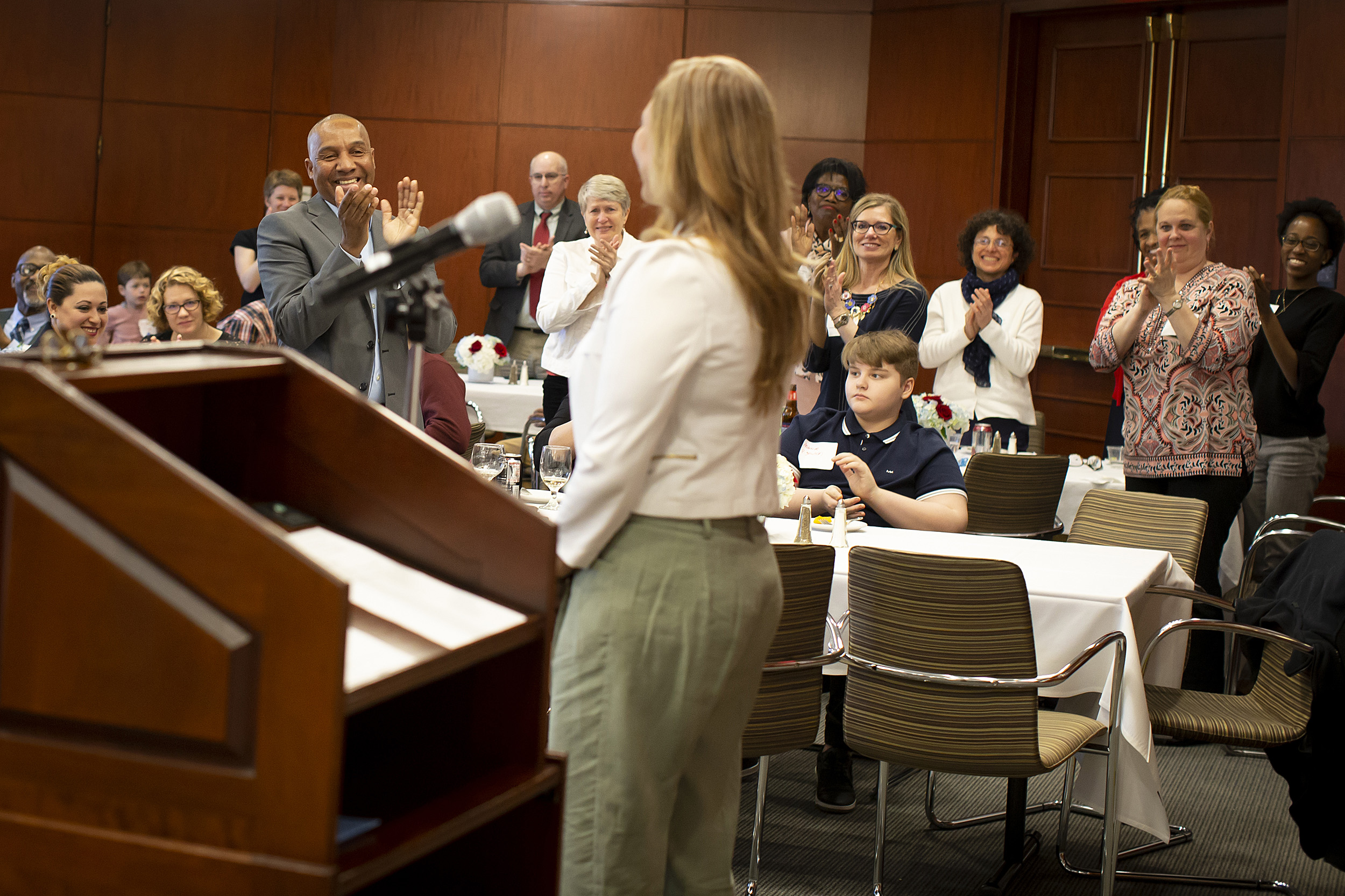
Luz Orozco receives a standing ovation after speaking at the Bridge Program annual dinner.
Rose Lincoln/Harvard Staff Photographer
Bridge to a new life
Student tutors help immigrant employees learn English, build marketable skills, and even obtain citizenship
Luz Orozco has two families: the one she immigrated for, and the one that helped her become a citizen.
Orozco, who is originally from Medellin, Colombia, came to Boston 14 years ago with her husband and two young daughters. Onetime business owners, Orozco and her husband were harassed and extorted by criminals in Colombia to the point where they feared for their safety. They fled the country for a better life for their daughters, and “everything we wanted for them came true,” Orozco said — but more than a decade later, her English was still limited and she was not yet a citizen.
The Bridge Program changed that. In partnership with the Institute of Politics (IOP), the program connects student tutors with Harvard employees looking to learn English, build career skills, prepare for college courses, or obtain citizenship. For Orozco, who became a citizen last year, the program was also a huge confidence boost. Once unsure of even how to order a coffee in English, she now chats easily with customers at the Harvard Medical School café where she works.
On Wednesday, when Orozco stood to speak at a dinner celebrating the program’s new U.S. citizens, her tutors and fellow students were there to cheer for her, bouquets in hand.
“The program is like a family,” she said. “They gave me this opportunity, and my life has changed 100 percent.”
Orozco was one of 16 honorees at the annual citizenship dinner. The group received congratulations from Harvard President Larry Bacow, IOP Director Mark Gearan, program staff, and several of the 64 undergraduates who volunteer as tutors.
Like Orozco, tutor Nick Wyville spoke about the program’s familial atmosphere. For Wyville, his co-tutor Renae Ford, and their “tutee,” Anne Odera, a friendship “evolved beyond the walls of Harvard.”
Wyville and Ford are both juniors, and have worked with Odera since they were first-year students. This month, she became a U.S. citizen.
“I became a real citizen through them, learning more about the United States than just the answers to questions for the exam,” said Odera, who worked at Harvard Alumni Affairs until earlier this year. “They molded themselves to what I needed.”
Ford said she has loved getting to know Odera — and that Odera’s many questions about the U.S. have “challenged our knowledge of American history,” leading to discussions not just about what the laws are, but why they exist.
Harvard University President Bacow, congratulates new citizens at the Bridge Program annual dinner.
Rose Lincoln/Harvard Staff Photographer
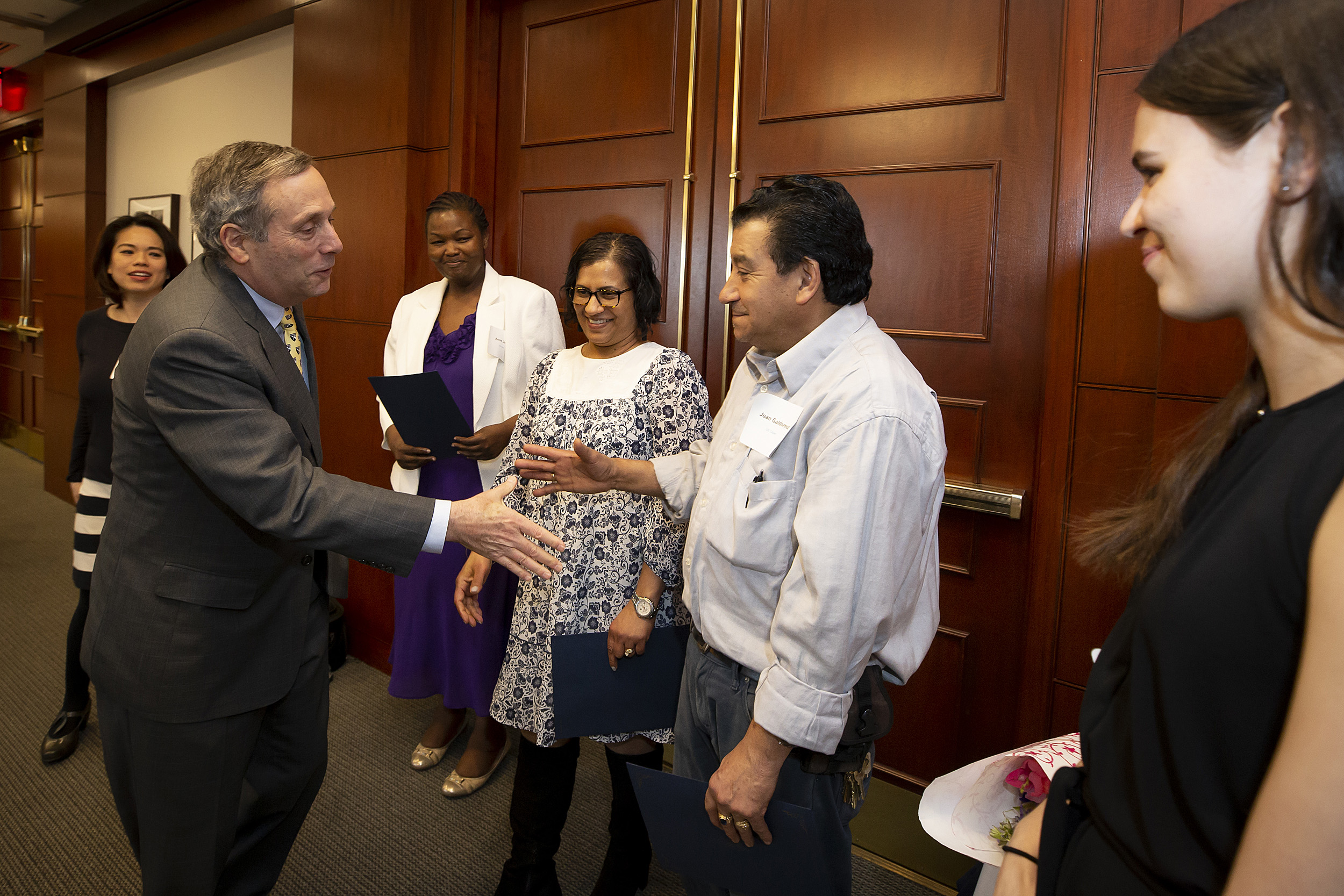
Gearan said many tutors have told him they’ve learned from their tutees in the process of preparing them for the citizenship exam. He called the Bridge Program “the very best of Harvard.”
Bacow agreed, saying he is often asked what makes a great university.
“There are really only two things that matter, and we have them both in abundance tonight,” Bacow said. “Great students, and great teachers.”
The University’s new president is the son of two refugees — his father from violence in Belarus and his mother from Auschwitz. He was moved to tears when talking about their path to citizenship.
“I remember to this day how my mother was so proud to do what you all did, take the oath of citizenship,” he told the program graduates. “I don’t have to tell you what it means to seek a better life for your children, as my parents sought for me and my sister.”
For many Bridge Program participants, like two of Orozco’s friends who came to celebrate her on Wednesday, becoming a citizen is the first step in a continuous learning journey.
Gerardin CiFuentes, who is originally from Guatemala and works in custodial services, and Lin Trever, who is Cambodian and works in dining services, have both been naturalized citizens for several years.
They have continued as program participants since then, taking classes periodically to improve their English.
Trever said she started taking English writing classes “not hoping for much.” Now, though, she sees a high school diploma — and more — in her future.
“When am I done with classes?” she said. “That’s up to me.”
